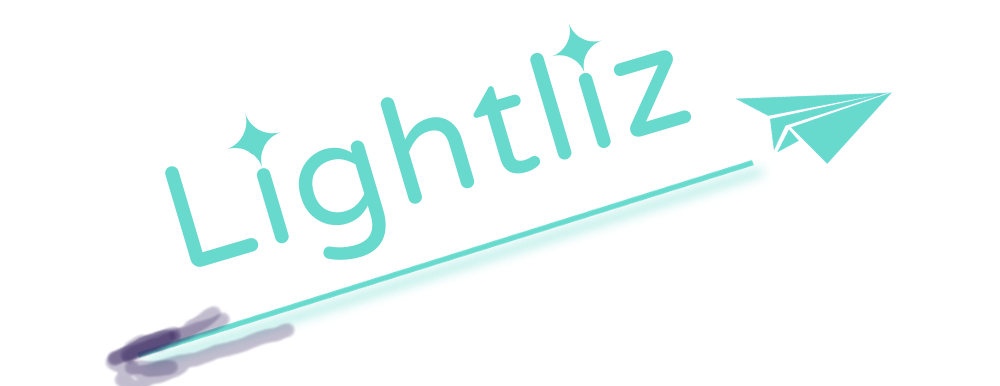We’ve all seen motivation clips of successful people having a purpose. But what about the ordinary people who live their life and have a few dreams of success? What about those who don’t want or can’t afford to think about purpose? Does everyone really have a purpose?
Potentially, everyone has a purpose that can be discovered. While a few people know their purpose early on in life, it is far more common to have solid purpose in our 30s when we earn enough experiences to reflect on. Some struggle to figure out their calling more than others, while others don’t even seek purpose for emotional reasons or a practical approach.
If you feel that you don’t have a purpose in life, you are not alone. There are plenty of people out there that feel the same. I’ve felt that way myself. I first avoided facing the question of purpose as it overwhelmed me immensely. Then, I struggled with this question for almost four years until I defined a balanced path for myself and followed it.
From what I’ve learned so far, I can tell it is possible to find and live your purpose if you want to and be dedicated to that. However, for some people, there are more things that interplay. A couple of economical and emotional matters need to be addressed to truly understand why it seems like some people don’t have a purpose.
Disclaimer : The information provided in this site is for educational purposes only, and it is not a substitue for professional advice. The article may contain affiliate links. See the full disclaimer for more details.
Does Everyone Have a Purpose?
It usually takes some time until one finds purpose and lives it. Many people eventually find a life in which they can feel fulfilled. Getting there relies first and foremost on your motivation to find meaning – some people are more motivated to explore themselves than others. It also depends on the number of experiences you earned and your patience to self-reflect on them on an ongoing basis.
There are several other factors to consider like socioeconomic status, culture, age, personality, and the extent to which one fears to explore purpose. Throughout my self-discovery journey, I investigated the process of finding purpose above and beyond and now provide you with a thorough post on that matter.
Before getting into details, let’s first clarify the ambiguous term “purpose” so we can better estimate if everyone has it or not.
What Does Purpose Mean?
The term purpose is often referred to as some spiritual destiny or calling that can be found in a moment of enlightenment. However, it is rare to happen to someone in the real world. This famous lofty vision of purpose is why finding purpose seems so overwhelming to many people. It appears to them as an ambiguous goal that is difficult to achieve and could lead to frustration.
In practice, you can find and achieve purpose over a prolonged period of experiencing things and self-reflection. It could be a career or a hobby that brings you joy, a business you start to help others solve a problem, meaningful relationships, or having a family. Each has a different purpose, and each stage of life manifests a different purpose for the same person.
In other words, the purpose can change and will most likely change over time. This sheds light on why perceiving purpose as one divine discovery is misleading.
So, it makes more sense to perceive purpose as something you do daily that feels joyful and impactful. Here you can dive deeper into what is a life purpose.
Now when we understand the actual meaning of purpose, let’s see when people tend to find purpose and what are the circumstances that some don’t do so.
When Do You Find Your Purpose in Life?
Until you get to your 30s or at least mid-20s, it is very natural to not figuring your true purpose. When people finish college, it is widespread to have some future career vision of satisfaction while lacking enough life experiences to forecast this path. So many graduates start to work in what they studied and discover the job is different than their first impression. Then they might begin changing directions until they find the one for them.
Of course, there are always those who know what they want to be in high school and stick with it for life (I hate you guys!). However, most people, me included, keep contemplating their career and meaning in life during their 20s and 30s until they reach mid-life when seeking purpose may become associated with immaturity 1.
Even if we march on a kind of career path, and we already have a decent job, it is very natural to wonder sometimes if you enjoy your job and whether you need to make a change. If you feel the same, you are not alone.
My case can serve as an extreme example. I got into an existential crisis at 34 and have been struggling with finding my purpose for almost four years. I always doubted my path and switched jobs quite frequently. At the same time, I was so naïve that I would fulfill my unrealistic academic aspirations, and indeed I failed to get a full scholarship for my endeavor.
Luckily, I came up with exploring and refining my passions to become a content creator. Here you can learn more about my self-discovery journey.
Unlike me and those like me, many people intuitively refine their purpose in between positions. These folks know themselves better on the go and don’t need to stop and actively explore their purpose. They make minor changes within their career path or, at some point, go big and decide to become entrepreneurs using the skills they earned as employees.
You might also know people who find their purpose outside their career – through a meaningful relationship or becoming parents in their 30s.
To sum up this point, there are many forms in which people find purpose. The common ground is that it usually happens during their 30s or 40s after they earn a decent amount and a variety of life experiences so they can configure what activities and lifestyles do them good.
Why Do Some People Lack Purpose in Life?
At the other end of the line, some people don’t seek purpose in the first place, and that ok too.
A Practical Approach to Life
I have a colleague from my last job as an employee who complained to me about his current position at work. We talked about him trying to learn new skills or striving for a promotion, but somehow life has forced him to stay in that same position many years later. He has three young children to care for, and he mentioned that changing company or career paths now seems a burden. While, for me, a purpose in a career is super important, I could truly appreciate his practical approach.
When getting married and raising kids in your 30s, it becomes riskier to start a career change, and saving the job you already have is reasonable. From what I know of my friends and relatives, this approach is still widespread in the era of self-improvement gurus.
Other people compromise on their dreams because they can’t afford them economically. They live monthly and retain their current job to make ends meet. Some of them find purpose in other activities, and some accept this condition as Maslow’s hierarchy of needs theory 2 suggests – those who are too busy to fill their basic needs don’t get to serve the higher needs in the chain like purpose.
Here is a caveat, though. The holocaust survivor Victor Frenkel explained in his best-seller book “Man’s Search for Meaning” (Amazon link) how purpose can still be developed in difficult circumstances and become a source of resilience. A recent study proved this finding and showed how a sense of purpose protected African-American youth from negative experiences under difficult life circumstances 3.
I will add that a challenging life or a particular personal problem can become a tremendous source of purpose. Often, we see therapists, coaches, and successful business people who harness their problems or limitations in life to improve others’ lives.
Seeking Purpose Might Put Pressure on Some People
Finally, some people avoid the search for purpose as it pressures them or makes them feel overwhelmed emotionally 4. An interesting case is that of one Redditor sharing her approach on purpose 5. She mentioned she prefers not to pursue a purpose as it puts too much pressure on her life. Instead, she tries to be happy, be a good person, and maintain a modest lifestyle.
I can understand her standpoint. Dealing with the life purpose question was too intimidating, so I avoided it for years and lived life. However, as a highly sensitive person, I must get a sense of purpose, and that caused me to feel trapped and unhappy. Fortunately, I could befriend the term purpose by investigating it. I finally find my purpose through a process of exploration, experiencing new things, and self-reflection.
See more possible reasons why some people lack purpose in life.
Is Having a Purpose Essential?
As you can see, finding your purpose is not a must. Some people don’t find purpose and live a decent life. However, having a purpose in your career or personal life may help you feel better and confront even tough challenges that life might bring – because you have a cause for what you do. A purpose is often associated with recognizing what does good for you and what kind of job lets you feel significant and proud. Here you can learn more about the benefits of finding your purpose.
How to Find Your Purpose in Life
If you haven’t found your purpose yet, don’t feel bad. It could be that figuring it out wasn’t that important to you so far. If it is important to you now and you still don’t know what to do with your life, then start exploring it might be a good choice.
By examining your purpose, I mean getting to know yourself better – observe your projects at work or your hobbies and reflect on what made you feel good and impactful. You can take notes in a note app or journal in the evening before bedtime. This is an excellent first step in an ongoing journey of observing, trying new activities, self-reflecting, and refining your purpose.
If you need more structured methods to explore your purpose, search no more. This blog provides you with various tools and experiential techniques to explore your purpose effectively.
Shachar is a blogger and sensitive person who worked in a recruitment company and holds a master’s degree in sociology. After years of struggles to find purpose, he made this blog to help others find their purpose more efficiently. He likes to play chess, walk in nature, and take photos in his free time.
- John Templeton Foundation (2018). The Psychology of Purpose: Claremont Graduate University. https://www.templeton.org/discoveries/the-psychology-of-purpose[↩]
- Motivation and Personality, Wikipedia[↩]
- DuRant RH, Cadenhead C, Pendergrast RA, Slavens G, Linder CW. Factors associated with the use of violence among urban black adolescents. Am J Public Health. 1994 Apr;84(4):612-7. doi: 10.2105/ajph.84.4.612.[↩]
- How to Tell If You Have Purpose Anxiety, Healthline[↩]
- What is your purpose in life? r/simpleliving post on Reddit[↩]


